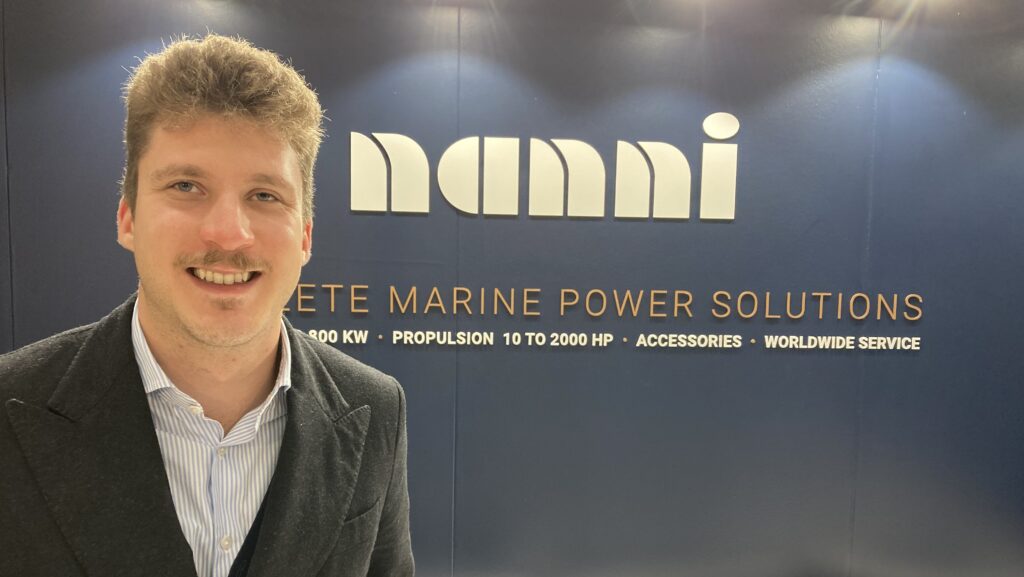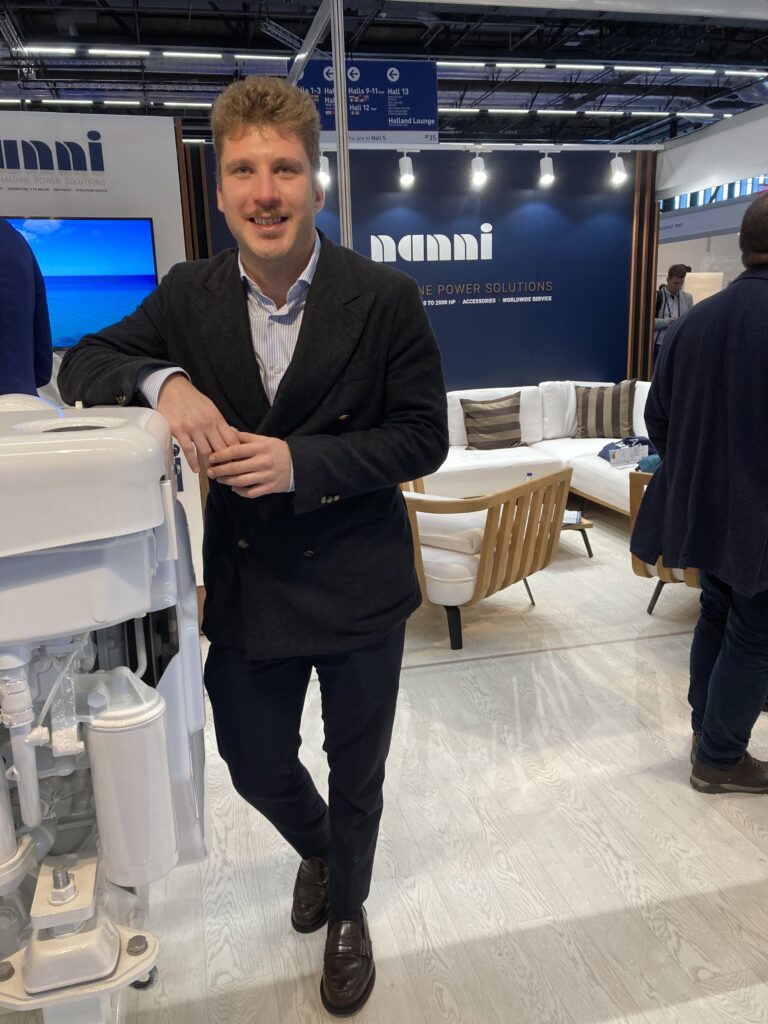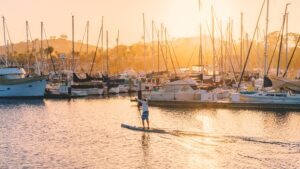In Focus: Nanni calls for realism about environmental challenges

According to Michele Insom, marketing director for marine engine manufacturer Nanni Industries, it’s time for the industry to start being realistic about green expectations.
“We need to be realistic with the situation,” Insom (pictured above) says. “We need to look at the proportion of how many people have got a boat — especially in leisure – compared to how many cars are running today.
“The impact of leisure marine is minimal compared to trucks. The marine sector is less than one per cent of the machinery running today in the world.
“The big target in front of the green revolution in this sector is how to keep the reliability of our product, that can match with the green expectation of the market. We need to check that companies are on the realistic side of what they propose to the market. Most of the companies are greenwashing, making it look green.”
Insom is pragmatic about what’s happening. He’s well aware that he’s heavily invested in a company that – since 1952 – has been designing and manufacturing engines and generators and says that the company’s main target is how to get to improvement around ecological problems.
“How we can improve the efficiency of our product is something we are discussing with our partners,” he says.
“The public is pushing on all the sectors, not only marine. But the people need to see and understand that we cannot expect an investment from each company to bring on the green revolution. There will be little things that little and medium companies do, but also the big companies will have to make a change.
“Our competitors are bigger, with thousands and thousands of employees and we are 100 employees. We are working to build up and improve an alternative solution for our customer but we need to see everything can’t be put on the shoulders of the little companies.
“We are in the same situation as the automotive and the trucks and buses. We are facing many options that we can apply, but the real option that we can give to the customer is the improvement of the actual product.

“The point is, today we do not see that Nanni is a green company. But we are talking about a sector that is on the sea – not on land – so there is much we need to consider. You need to be sure on the sea so, today, a diesel engine is the only thing that can give you the reliability.”
Insom says Nanni is still facing challenges in material availability after covid and due to the war in Ukraine. “We are not alone, so many sectors have been affected with these crisis. We need to start building up.”
This, however, isn’t slowing the company down. With production and logistics plants in France, a commercial office in Rome and a logistics centre due to open in Italy in 2024, Nanni is now firmly eyeing the US and Asia as “interesting parts of business.”
“We are not the market leader,” Insom says, “but Nanni is the only company that can provide generator and engines on this range of power 5-800 kilowatt and 10-2000 horse power and can assemble and offer so many products to the customer.
“We are the only company that is not derived from an industrial sector or from a truck or bus or automotive company, so we are not a section of a big automotive company. We are focused 100 per cent on the marine sector. We know this sector and that’s who we are: marine.”










